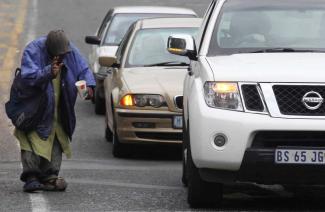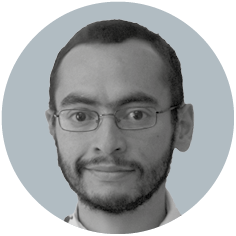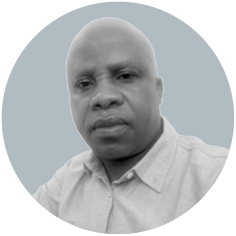Poverty reduction
Economic growth is not a magic wand for Africa

Before the pandemic, Africa experienced economic growth in the first two decades of the new millennium. However, according to the World Bank, the poverty headcount ratio – the percentage of the population earning less than $ 6.85 per day – did not fall more than five percentage points, from 92 % to 87 % of the continent’s population. So who actually benefited from the economic growth during these years?
The fruits of this rather blooming period went to the richest on the continent. Between 1980 and 2017, the income of the poorest in Africa grew at 0.73 % per year, while the income of the richest thousandth grew at an annual rate of around three percent, as research from the African Centre of Excellence for Inequality Research and the Agence Française de Développement shows.
Economic growth is not sufficient
This means we need to acknowledge that economic growth in its current shape is and will be insufficient. Even in an ideal, sustainable and equitable form, economic growth is not a magic wand that will eradicate poverty and inequality in Africa.
Truly sustainable and equitable growth should be part of comprehensive approaches that involve the state, society and the support of international actors who are genuinely interested in an economically strong African continent. This also means discussing how wealth is distributed. If the majority of the population remains trapped in poverty while wealth increases for a few, a discussion needs to take place about the way in which taxation and social security systems should uplift people from poverty and reduce inequalities.
At the same time, the urgency of climate change is fuelling discussions on de-growth, post-growth and the nature of growth altogether. However, acknowledging these debates about how the economy must grow to ensure the survival of the planet should not mean sacrificing Africa and its people to the overarching goal of sustainability – especially since it is the wealthiest 10 % of the world’s population that accounts for 48 % of global carbon emissions.
Moving further into this millennium, the ongoing legacies of colonialism and post-independence economic paths continue to condition the interaction between poverty, economic growth, and inequality in Africa. These legacies are especially marked by the persistence of inequalities of opportunity and remuneration.
It should therefore be obvious that the rising poverty and destitution across Africa since 2020 is not merely the result of the pandemic, climate change, inflation and food insecurity.
Way before 2020, millions of people on the continent were already vulnerable. That means their lives were and still are determined by the lack of social mobility, economic insecurity and weak social protection systems marked by inequalities and exploitation. While we tend to associate poverty and inequality with income related metrics, the realities of poverty and inequality are about rights (i.e. to own property), opportunities (i.e. access to education) and services (i.e. health, public transport) which are an obligation of states and a central feature of development.
The ever more urgent task for activists, researchers, government officers and policy makers is now to unpack the complex relations between growth, poverty and inequality in a way that makes it possible for economic growth to really benefit the people on the continent. Economic growth in its current shape, that is to say, cannot be expected to be inclusive and sustainable for Africa.
References
Chancel, L., 2022: Global carbon inequality over 1990-2019. Nature Sustainability volume 5 (2022).
https://www.nature.com/articles/s41893-022-00955-z
Fabio Andrés Díaz Pabón is a researcher at the African Centre of Excellence for Inequality Research of the University of Cape Town and a research associate at Rhodes University in South Africa.
fabioandres.diazpabon@uct.ac.za













